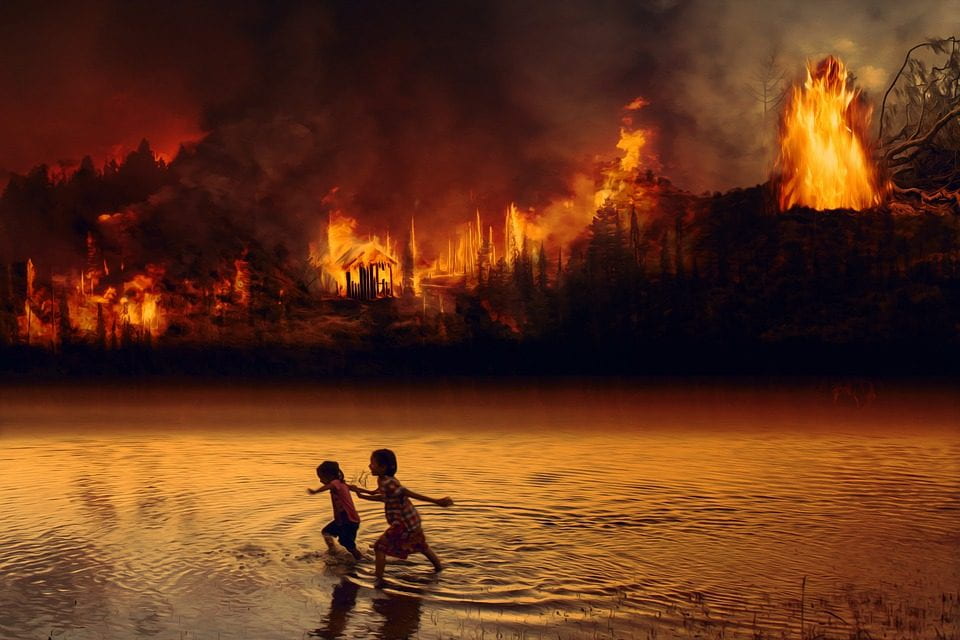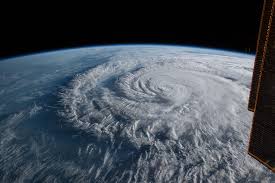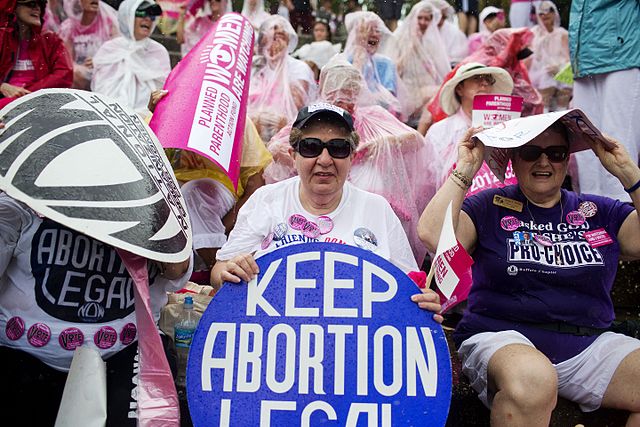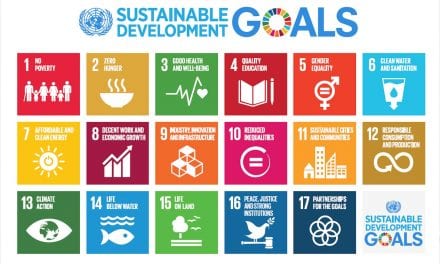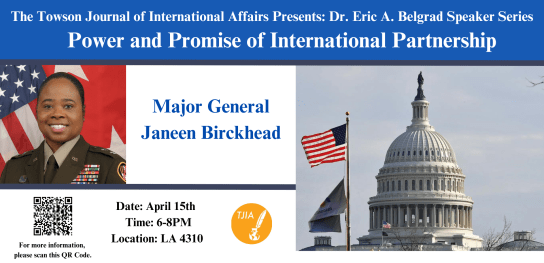“The world needs the forest. We need it and our children need it,” Handech Wakana Mura, of the indigenous Mura people, explained somberly. [1] “We are sad because the forest is dying constantly.” [2] To those outside of the local and indigenous communities, the immense destruction currently occuring within the Amazon ecosystem is difficult to imagine. According to data from the National Institute for Space research, 83,000 fires have been documented within Brazil during 2019 alone, an estimated increase of 77% from 2018. [3] For many within the global community, the dramatic increase in fires, which failed to make international headlines until August, was a horrifying shock, with ominous images of midday skies turned black with heavy smoke haunting individuals around the world. However, while the recent international attention to the expansive deforestation by the Brazilian government is important, the dramatic escalation of the ongoing crisis in the Amazon has been looming heavily over these communities for years, and has only intensified following the election of the controversial conservative Brazilian President Jair Bolsonaro. The lack of international attention afforded to the crisis can be at least partially attributed to Bolsonaro’s uncooperative stance in implementing environmental policies within Brazil that can be considered satisfactory by the standards of global leaders, complicating international negotiations on environmental policy. This disconnect between the goals of Bolsonaro and of world leaders has stagnated discussions over sustainable Brazilian development and reflects the Global North-Global South divide within international environmental policy.
The massive wildfires currently burning within the Amazon initially gained prominent media attention outside of Brazil when immense clouds of smoke from the fires reached Brazil’s most populated city, São Paulo, midday on August 19, 2019. [4] However, unbeknownst to the majority of the world, wildfires had been running rampant within Brazil for the majority of this year’s dry season, largely due to a decrease in deforestation regulation from Bolsonaro combined with annual land clearing by local farmers. The regulation of forest preservation techniques has suffered extreme cuts at the hands of Brazil’s current administration, including removing $23 million from Brazil’s environmental enforcement agency’s funding. [5] This lack of funding limits the government’s ability to prevent the environmental destruction and regulate the agricultural and mining projects occurring within the Amazon, leading to vehement opposition and criticism against the policy by Brazil’s indigenous communities.
These fires could potentially have environmental impacts on ecosystems and wildlife all around the world, a fact which has led international leaders to offer monetary support to Brazilian authorities in combatting the disaster. During the G7 summit in France in August, French President Emmanuel Macron announced that the seven member states of the G7 (France, the US, the UK, Canada, Germany, Italy, and Japan) would provide Brazil with $22 million in order to support the state in containing and extinguishing the blazes. [6] According to President Macron, France would also provide military support along with the funds, which would be available to Brazil immediately. [7] In addition, Chile, Ecuador, and Israel have also offered Brazil monetary support against the ongoing wildfires. [8]
Despite the international urgings and substantial pledges of support, President Bolsonaro has demonstrated considerable reluctance in accepting these contributions. Bolsonaro has compared the offerings of monetary support with Brazil’s colonial period, suggesting that, for Brazil to accept the funds, the state would be giving up its sovereignty once again to the Global North. [9] Although Bolsonaro has since expressed greater interest in discussing international aid and intervention to assist with controlling the blazes, he has still failed to concretely request assistance from other international powers, instead promising conversations with Colombia and other states local to the Amazon region and expressing interest in opening a dialogue on the issue. [10]
While it is easy to condemn the President for his lack of international cooperation in stopping an environmental crisis of both domestic and international urgency, it is more productive for the international community to approach the issue from a more nuanced perspective. It is important to understand Bolsonaro’s motivations for rejecting the aid in order to find a solution to this problem which is both feasible and realistic for the Brazilian government and satisfies the expectations of the global community. This situation should act as an opportunity to increase international dialogues on climate change as it begins to impact more states in the Global South. In the upcoming years, Bolsonaro will not be the only international leader to reject climate change or international assistance in the face of environmental disasters. Although the current Brazilian administration is perpetrating the disaster, the stance of the government must still be considered in any productive discussion on the issue.
Throughout his presidency and campaign, President Bolsonaro has been vehemently opposed to strengthening environmental policy in Brazil, arguing both against the existence of climate change and that international climate policy is merely a means to achieve colonialist objectives in the region. Bolsonaro’s stances are perhaps most clearly demonstrated in his address to the UN General Assembly on September 24th of this year. He condemned the international leaders present at the conference, accusing the global community of using the fires, which he claims were exaggerated in “sensationalist attacks” against Brazil by foreign media outlets, as an attempt to rob Brazil of its opportunity to cultivate its own wealth within the Amazon. [11] Additionally, Bolsonaro has made dubious claims regarding the wildfires, including that the fires were started not by land-clearing agriculturalists, but rather by members of environmental NGO’s who lit the fires in a conspiratorial attempt to place international scrutiny on Bolsonaro’s regime. [12] In essence, Bolsonaro’s tactic on handling climate change discussions is to deny and deflect.
While not to the dramatic, and at times ridiculous, lengths of President Bolsonaro, some of the sentiments expressed within Bolsonaro’s response to the Amazon wildfires can be seen within other Global South states. Although Bolsonaro may be motivated to promote a narrative of sovereignty infringement due to his own political self-interest in preventing the acknowledgement of his own administration’s contributions to the current Amazon crisis, his statements surrounding Global South sovereignty in the context of a world increasingly affected by climate change and the destruction of natural resources reflect the shared concerns of other semi-periphery and periphery states. Although, in the context of such a devastating natural disaster, Bolsonaro’s statements can be interpreted as obtuse, international decision-makers designing environmental foreign policy must bear in mind the historical, economic, and political implications of their proposals.
During the G-7 Summit, President Macron appealed to cosmopolitan ideals in order to garner international support for the aid offer and encourage its acceptance by Brazil. While Macron reassured Brazil that the aid would not be an attempt to undermine the state’s sovereignty, he reiterated the importance of the Amazon as a natural resource not just for Brazil, but for people all over the world. According to Macron, the international community and G-7 leaders want to help the state to “find the means for your economic development that respects the natural balance.” [13] Given Bolsonaro’s primary concern is preserving Brazil’s sovereignty and exerting maximum economic influence, it is clear that the approach of examining the Amazon as a shared natural resource amongst all people of the world would not be an effective argument to sway Bolsonaro towards accepting the proposed aid. Thus, while the offer appears benevolent from the Western perspective, the proposal can easily be dissected and manipulated by Bolsonaro and Brazilian nationalists to reflect imperialist underpinnings.
Therefore, although the situation is urgent and action must be taken, solutions need to take into consideration the foreign policy perspective of Brazil. For much of the 21st century, Brazil’s foreign policy has centered primarily on South-South cooperation, which has allowed Brazil to economically expand and exert influence amongst other states with colonial histories. Through this emphasis on South-South coordination, Brazil has gained significant international influence. [14] Granted that Brazil’s foreign influence lies primarily within the Global South, it is clear why President Bolsonaro could perceive the eagerness towards Western intervention as a threat to Brazil’s power. This is additionally clear through Bolsonaro’s greater interest in discussing aid with other states within the Global South (other South American states) than in considering the European and North American offers of intervention.
It is additionally important to examine the situation with consideration towards Brazil’s economic situation in recent years. Brazil has struggled to stay in competition with the other major economic powers due to a recession that lasted from 2015-2016 and from which recovery has been slow. Along with this, Brazilian citizens have been battling increasing levels of unemployment and inflation.[15] The economic crises currently faced by Brazil are most likely a result of the government overspending, with former-President Dilma Rousseff impeached due to allegations that she had “masked Brazil’s fiscal deficit to hide how much her government was overspending.” [16] Given these circumstances, it is unsurprising that President Bolsonaro would be reluctant to engage in any exchange that could risk portraying Brazil as dependent or economically weakening under his regime. Additionally, since the promotion of industrialization and the utilization of the Amazon’s resources are major factors in Bolsonaro’s economic policy, he would be especially prone to reject offers that would pressure the state to end or limit these practices.
As of mid-September, the Amazon rainforest is still burning, yet the Brazilian government is vehemently denying all allegations of ongoing fires to foreign media, and Bolsonaro continues to emphasize the sovereignty of Brazil over the Amazon. The president called on his supporters on Brazil’s Independence Day to “show the world that this is Brazil” and that “the Amazon is ours.” [17] These nationalist appeals combined with his destruction of Brazilian policy councils that favored the left-leaning Worker’s Party, including those that centered on environmental policy, suggest that Bolsonaro may be leading Brazil towards a more authoritarian regime. [18] This would increasingly complicate international interventions in preventing the destruction of the rainforest, as supporters of these interventions within Brazil would hold less influence over the government and may even be suppressed. One can therefore assume that Bolsonaro’s denial of culpability for and of the existence of the wildfires will only continue, unless he ceases to view the disaster as a threat to his regime or Brazil’s economic power.
Sovereignty in the face of climate change is an obstacle that all states will be forced to face in upcoming years as the world becomes more and more affected by environmental changes. Ultimately, while it is crucial that policy-makers act with urgency, they must also take the unique relationship between climate change and developing states into consideration when presenting policy options. It is clear from his political position and Brazil’s current economic situation that it would be out of character for President Bolsonaro to graciously and urgently accept President Macron’s offer of aid on behalf of the G7, although from our perspective in the Global North this seems illogical and unreasonable. Considering his encouragement of deforestation along with the emphasis of Brazil on South-South relations, it is clear why President Bolsonaro made his decision. Thus, when engaging in discussions of climate policy, it is crucial to appease the expectations of Western states while at the same time balancing the realities of developing states. To alleviate the sense of blame-shifting felt by many developing states, Global North states should lead discussions on climate change through their example by strengthening their own domestic environmental policies. Ultimately, world leaders must engage in constructive dialogues, in which all voices are heard, in order for change to occur while there is still time.
- DW News. “Brazil’s Indigenous People: ‘All of Those Trees Had Lives’| DW Stories.” Youtube, 1:40. August 24, 2019. https://www.youtube.com/watch?v=BazTcT_tnJY.
- DW News, “Brazil’s Indigenous.”
- Amanda Woods. “Brazil Bans Legal Land-Clearing Fires in Wake of Amazon Wildfires,” New York Post, August 30, 2019, https://nypost.com/2019/08/30/brazil-bans-legal-land-clearing-fires-in-wake-of-amazon-wildfires/.
- Zoe Sullivan. “The Real Reason the Amazon Is on Fire,” TIME, August 26, 2019, https://time.com/5671162/why-the-amazon-is-on-fire/.
- Kara Fox and Marina Lang. “Brazil’s Bolsonaro Says He ‘Loves’ the Amazon. But His Policies Are Designed to Wreak Havoc on It,” CNN, August 27, 2019, https://www.cnn.com/2019/08/25/americas/brazil-bolsanaro-environmental-record-intl/index.html.
- “Amazon Fires: G7 to Release Funds for Fire-Fighting Planes,” BBC News, August 26, 2019, https://www.bbc.com/news/world-latin-america-49469476.
- “Amazon Fires.”
- “Brazil Weighs Offers from US, Others to Help Fight Amazon Fires,” Al Jazeera, August 30, 2019, https://www.aljazeera.com/news/2019/08/brazil-weighs-offers-fight-amazon-fires-190830211657063.html.
- “Amazon Fires.”
- “Amazon Fires.”
- Marina Lopes. “The Amazon Isn’t on Fire, Brazil’s Bolsonaro Tells the U.N. General Assembly; It’s Full of Riches,” The Washington Post, September 24, 2019, https://www.washingtonpost.com/world/the_americas/brazils-bolsonaro-tells-world-leaders-at-the-un-that-the-amazon-is-not-under-fire-but-full-of-riches/2019/09/24/2bddfa34-ded0-11e9-be7f-4cc85017c36f_story.html.
- Mariana Simões. “Brazil’s Bolsonaro on the Environment, in His Own Words,” New York Times, August 27, 2019, https://www.nytimes.com/2019/08/27/world/americas/bolsonaro-brazil-environment.html.
- “The Latest: Macron Calls Amazon an Issue for Whole Planet,” AP New, August 27, 2019, https://www.apnews.com/9193fb6a2dc84d55bbc67b16d650b9bc.
- Steen Fryba Christensen. “Brazil’s Foreign Policy Priorities,” Third World Quarterly 35, no. 2 (2013): 273.
- Daniel Gallas & Daniele Polumbo. “What’s Gone Wrong with Brazil’s Economy?” BBC News, May 27, 2019, https://www.bbc.com/news/business-48386415.
- Gallas & Polumbo, “Brazil’s Economy.”
- Dom Phillips and Tom Phillips. “Bolsonaro Launches ‘Brazil Week’ in Bid to Revamp Image over Amazon Fires,” The Guardian, September 6, 2019, https://www.theguardian.com/world/2019/sep/06/bolsonaro-brazil-week-amazon-fires.
- Valesca Lima. “Brazil’s New Leaders Are Challenging the Tradition of Participatory Democracy. Here’s Why,” The Washington Post, June 7, 2019, https://www.washingtonpost.com/politics/2019/06/07/brazils-new-leaders-are-challenging-tradition-participatory-democracy-heres-why/.

